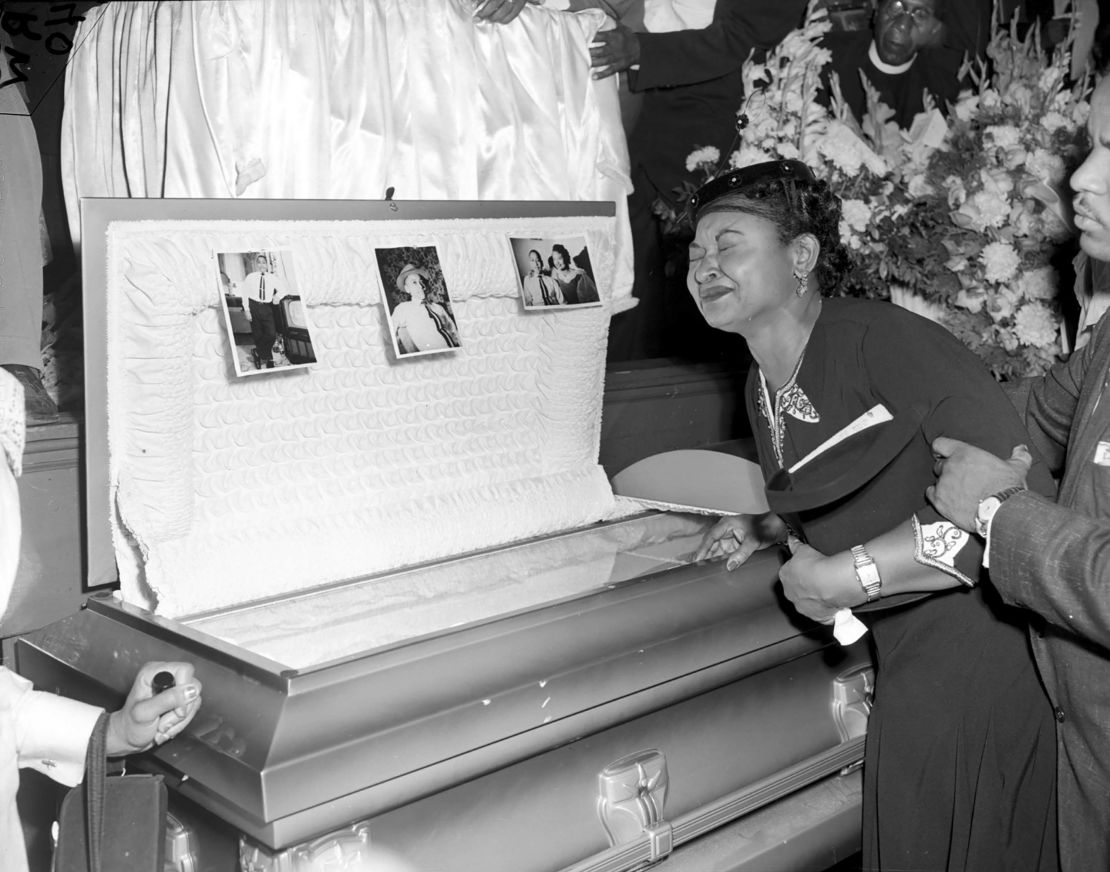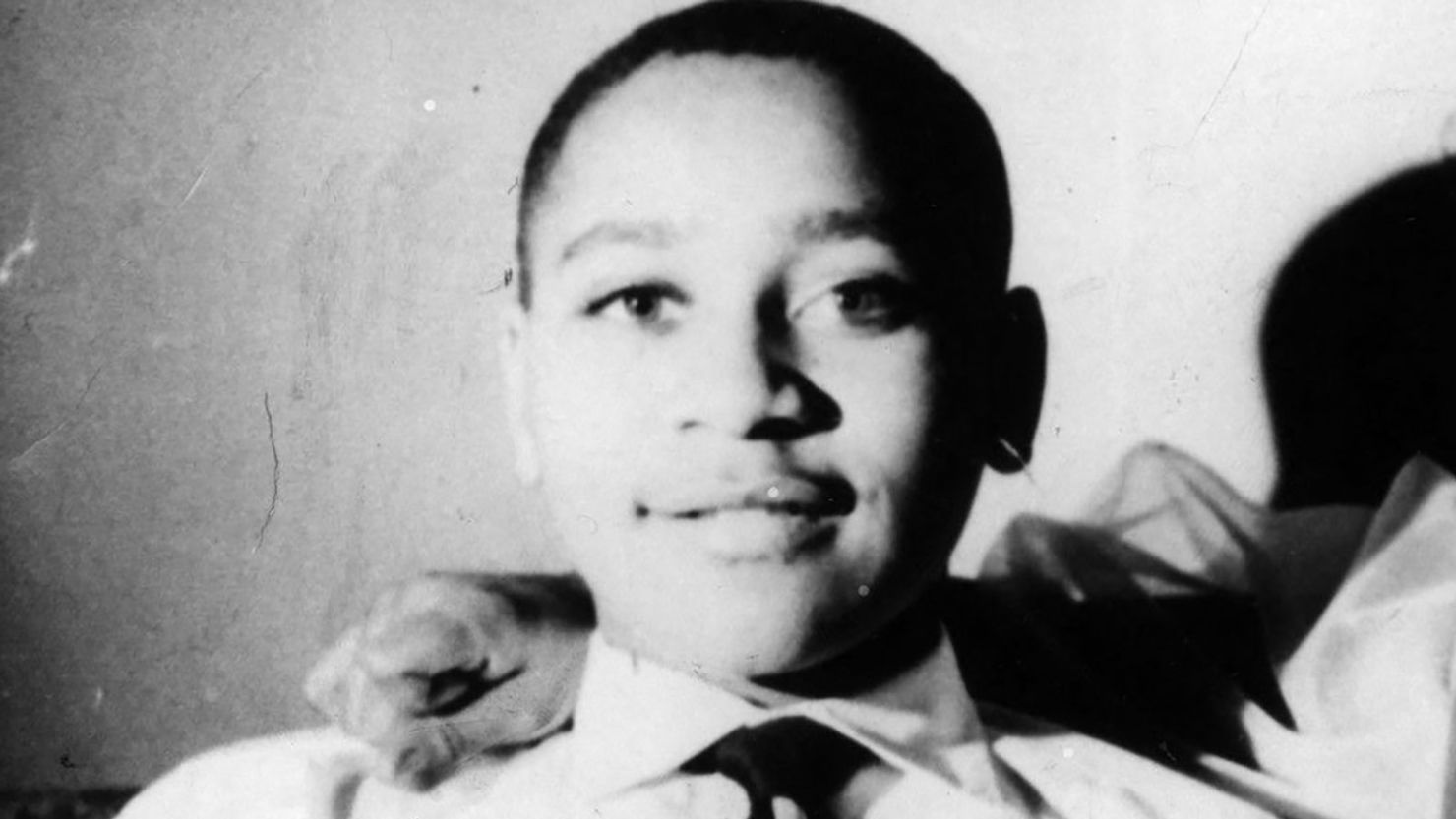Editor’s Note: Ollie Gordon is a cousin of Emmett Till and president of the Mamie Till Mobley Foundation. Arusha Gordon (no relation to Ollie) is associate director of The James Byrd Jr. Center to Stop Hate, a project of the Lawyers’ Committee for Civil Rights Under Law. The views expressed here are those of the authors. Read more opinion on CNN.
In 1955, Emmett Till, a Black boy who was just 14 and a mere five foot four inches tall, was kidnapped and brutally tortured by White men – all for allegedly whistling at a White woman. Yet, more than six decades later, lynching is still not a federal hate crime.


Earlier this month, the Department of Justice and the US Attorney’s Office for the Northern District of Mississippi announced that they closed their investigation into Till’s murder. Federal and local prosecutors made the decision to close the case – which had been re-examined once before – after investigators were unable to corroborate a claim made by a Duke professor that the former wife of one of Emmett’s killers had recanted her prior account of the events leading to the murder.
We are dissatisfied with the lack of accountability for Emmett and his family. Yet, we remain undeterred in our quest to move forward. We know that to heal the past and bring justice in the present, we must address our country’s history of racist violence.
To that end, the Mamie Till Mobley Foundation and the Lawyers’ Committee for Civil Rights Under Law continue to push for passage of the Emmett Till Antilynching Act. This vital legislation would, finally, declare lynching a federal hate crime, bringing the full force of the law to bear in vindicating the rights of Black people who continue to be the most common victims of such violence.
The Emmett Till Antilynching Act passed the US House of Representatives in 2020 by a near unanimous vote (410-4), but then stalled in the Senate due to a single senator’s opposition. Most recently in the current session of Congress, the House Judiciary Committee advanced the bill out of committee on a voice vote. Perhaps not coincidentally, that vote took place just days after the investigation into Emmett’s case was closed and around a fortnight after the conclusion of the trial of three men charged with killing Black jogger Ahmaud Arbery in Georgia last year.
While the Emmett Till Antilynching Act would not bring back Emmett or restore the lives of countless other Black Americans stolen by White supremacy, it would serve as a crucial public recognition of our country’s sordid history of lynchings and other racist violence.
Like other hate crimes, lynchings are messaging crimes — they signal to anyone who shares the targeted victim’s identity that they are in deadly danger if they dare disturb the unspoken rules of White supremacy. Hate crimes traumatize not just those in the immediate community of the victim, but reverberate across communities and generations. After Emmett’s murder, the cousins he had grown up with had nightmares that White men were going to take them away and kill them as well. Others experiencing hate crimes in their community may similarly suffer from post-traumatic stress disorder or otherwise be seriously impacted.
Passage of the Emmett Till Antilynching Act into law would send a powerful message that, as a country, we acknowledge our history of racist violence and pledge to create a different future. This message is especially important given the continuing epidemic of violence against Black Americans. Like the White men who brutally murdered Emmett Till, perpetrators of these crimes are motivated by fallacious notions of Black criminality, one of the central tenets of White supremacy — assuming, for example, that a Black man who was running through a residential neighborhood must have committed a crime, or that a Black boy playing a radio at a high volume somehow constitutes a threat, and that, as White people, they could and should intervene with fatal violence.

As was the case with Emmett’s killers, in some of these cases the justice system either failed to swiftly respond to the egregious act of violence or left communities on edge wondering whether justice would ever be done. For months after Arbery’s killing, local prosecutors failed to arrest the men who accosted and shot him, letting them instead remain comfortably inside their own homes. While Arbery’s murderers were eventually found guilty, the men who murdered Emmett Till, and those who assisted them, were never brought to justice.
In light of these horrific crimes, the halting progress and too-frequent failures of the justice system has long spurred private citizens toward other forms of advocacy for change. After Emmett’s murder, his mother, Mamie Till-Mobley, made the courageous decision to hold an open-casket funeral, leaving her son’s brutalized body visible to the thousands who gathered to pay their respects. “I wanted the world to see what they did to my baby,” Till-Mobley explained.
And, with the help of Black journalists, the world did see what the perpetrators had done to her son. The world saw Emmett’s mangled body and the raw grief of a mother who had lost her only son. Mamie Till-Mobley’s act led to serious change — it added further fuel to the fight for equal rights and helped lead to the eventual passage of a number of civil rights laws.
In that same tradition, it is now time to take that advocacy a step further by calling again for federal anti-lynching legislation. The investigation into Emmett’s murder may have concluded, but we are not deterred in our calls for justice. Those who care about ending the epidemic of racist violence must follow the example set by Mamie Till-Mobley, turning their pain into action so that, eventually, our country names its racist past and move toward justice.


